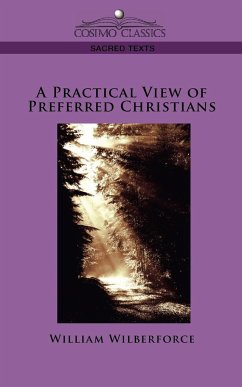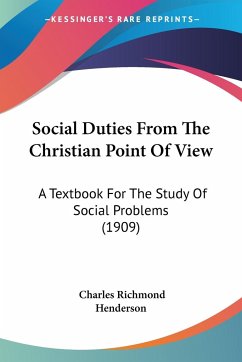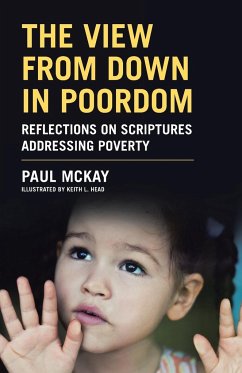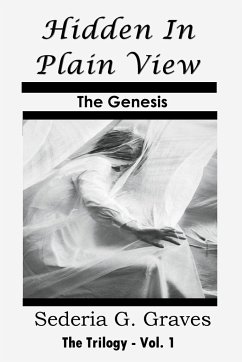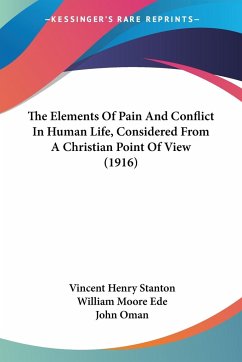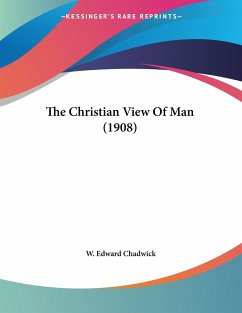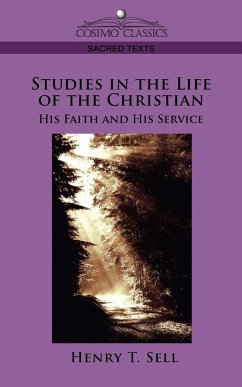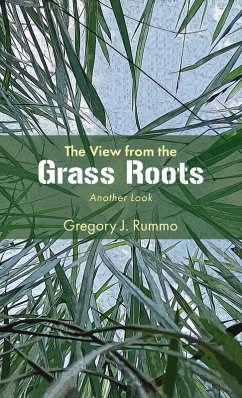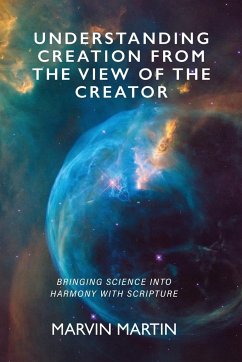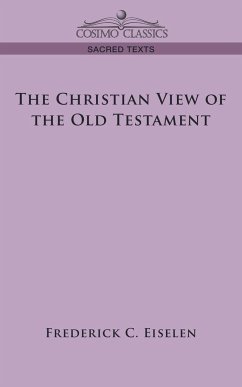
The Christian View of the Old Testament
Versandkostenfrei!
Versandfertig in 1-2 Wochen
19,99 €
inkl. MwSt.

PAYBACK Punkte
10 °P sammeln!
After a close study of the Genesis narrative and the numerous attempts of harmonizing it with science, the present writer has become thoroughly convinced that it is impossible to establish a complete, detailed harmony between the Genesis account of creation and the established facts of science without doing violence to the Bible or science or both. -from "Chapter II: The Old Testament and Modern Science" With a up-to-the minute modernity refreshing in a book almost a century old, this 1912 gingerly walks the precarious line between acknowledging the achievements of science and recognizing the ...
After a close study of the Genesis narrative and the numerous attempts of harmonizing it with science, the present writer has become thoroughly convinced that it is impossible to establish a complete, detailed harmony between the Genesis account of creation and the established facts of science without doing violence to the Bible or science or both. -from "Chapter II: The Old Testament and Modern Science" With a up-to-the minute modernity refreshing in a book almost a century old, this 1912 gingerly walks the precarious line between acknowledging the achievements of science and recognizing the wisdom and comfort accorded by religious faith. Examining more than just the centuries-long clash between faith and reason, Biblical scholar Frederick Carl Eiselen, a voice almost forgotten today, discusses how and why the Old Testament holds its own against modern criticism, contemporary archaeology, and comparative mythology to remain of concrete significance for today's Christians. A brave and insightful work at the turn of the 20th-century, it remains an even braver one at the turn of the 21st. OF INTEREST TO: religious philosophers, students of 20th-century Christianity, readers of culture-war issues American author FREDERICK CARL EISELEN (1872-1937) also wrote Prophecy and the Prophets in Their Historical Relations (1909), Books of the Pentateuch: Their Origin, Contents, and Significance (1916), and Psalms and Other Sacred Writings: Their Origin, Contents, and Significance (1918).





